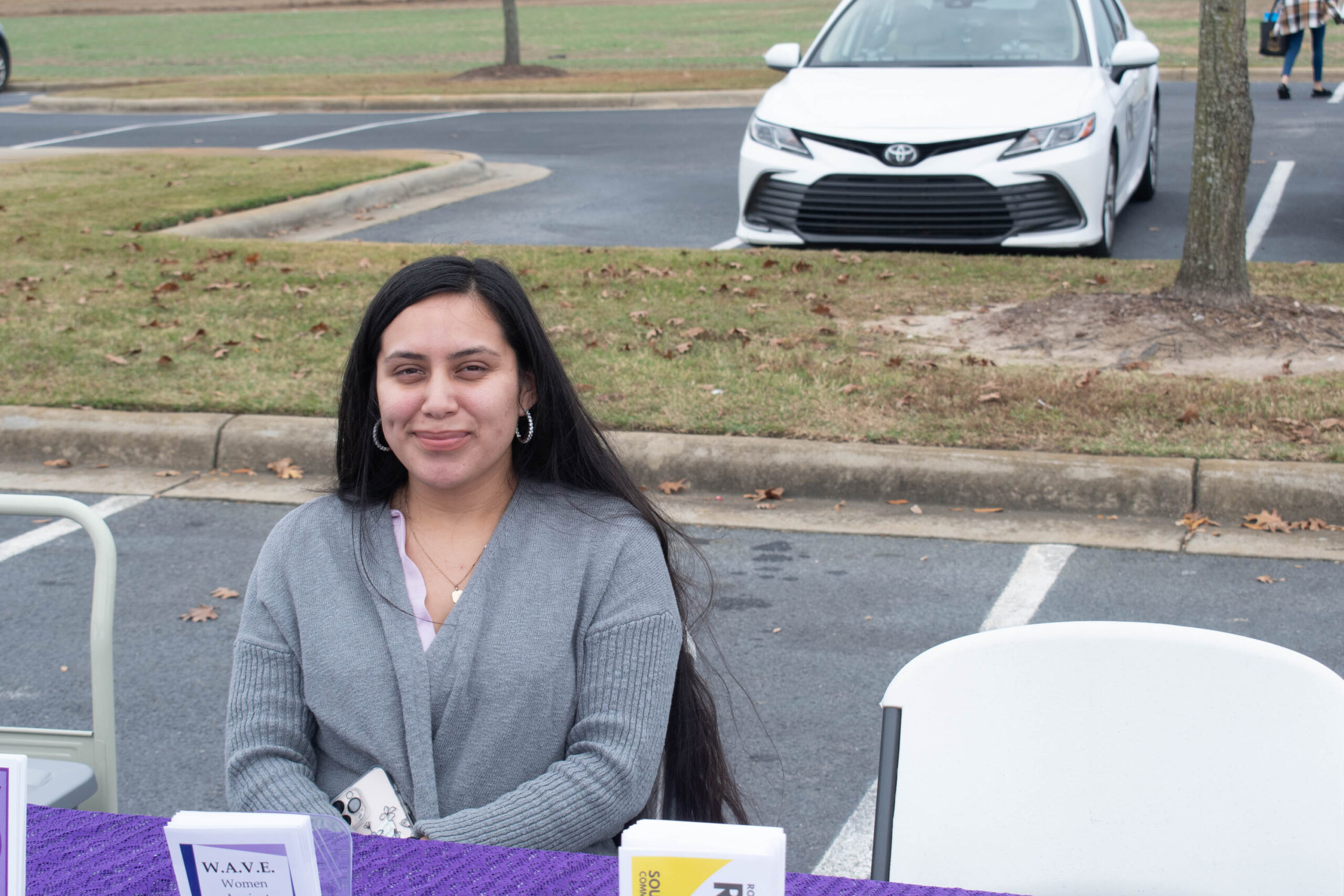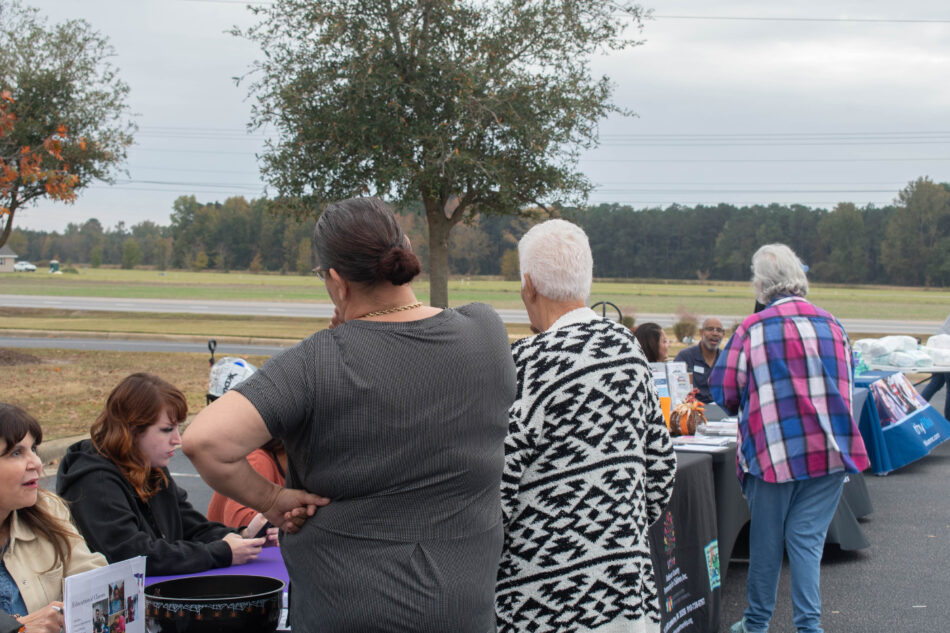In the parking lot of the Lumbee Tribe Housing Complex in Pembroke, N.C., grandparents and parents lined up for a diaper drive in the countryside on Nov. 2. Members of the local community, many of whom are Lumbee, moved from table to table, picking up information pamphlets, candy and diapers.
Outreach events like this are essential to spread awareness about resources available to tackle the intimate partner violence epidemic in Robeson County, according to Alice Bell, a victim advocate for North Carolina’s Department of Administration Commission of Indian Affairs.
The Southeastern Family Violence Center, a nonprofit that provides crisis intervention and advocacy for domestic violence survivors in Robeson County, reports that almost half of their clients are Lumbee women.
“Southeastern Family Violence Center, they’ve been here for 40 years, but people didn’t know about it. As a survivor myself, who went through that 15 years ago, I didn’t know about the resources,” Bell said. “So that’s the reason we are here. We set up everywhere we can, we get the information out there.”
The Department of the Interior’s Bureau of Indian Affairs says that four out of five American Indian women are victims of violence with rates of disappearances and murder higher than the national average. And 96% of victims characterized their perpetrators as non-Native men in a 2016 National Institute of Justice report.
But in the Lumbee tribe of North Carolina, survivor advocates say that Native men are generally the ones committing intimate partner violence and the numbers of domestic violence in the community are rapidly increasing. About 42% of residents in Robeson County, a part of Lumbee Tribe Territory, are American Indian. The Missing and Murdered Indigenous Women of North Carolina Coalition reported in 2021 that 33% of victims were from Robeson County.
Bell said that much of the violence is “generational” and added she wanted to give back to the community she lives in.
“I understand what a victim is going through, so I can relate,” she said.
Bell also mentioned that only one domestic violence shelter in Robeson County did not accommodate demand for victims seeking emergency housing.
“I want to empower women and men as well and let them know, ‘You don’t have to endure this. There are resources out there. There’s housing out there. There’s employment out there. There are resources out there to help you get out of the situation that you’re in,’” she said.

Nicole Flores of Southeastern Family Violence Center tabling at diaper drive, Nov. 2, 2024. (Photo by Ben Land.)
Nicole Flores, a victim advocate working at Southeastern Family Violence Center, said that the official numbers of domestic violence cases might be higher than the number reported. She added that when victims contact law enforcement, they often tend to fear retaliation from their perpetrators.
“In Robeson County, a lot of women are pretty much the homemakers. We’re so used to the ideology or terminology that women are supposed to take care of the home while the men are the breadwinners, meaning that they have to go take care of the home, bring in the income,” Flores said.
When a domestic abuser controls the family’s finances, Flored added, it is more difficult for victims to escape without adequate resources.
The Lumbee Tribe’s domestic violence program, Enlightening Native Daughters (END), is trying to close the resource gap for women and youth with court advocacy, support groups and intervention services in the four-county Lumbee Tribal Territory. The program, founded in 2011, recently received a $198,000 state grant in March 2024, which it used to hire a team to coordinate more initiatives for Lumbee survivors.
Melissa Hunt, the Enlightening Native Daughters project coordinator, works directly with women and youth who are enrolled Lumbee citizens. She emphasized the need for victims to have spaces to talk about their traumas and begin the “healing process.”
“It’s a stigma that we need to get through,” said Hunt. “They want to keep it within the community, keeping in the families where it could be healing to take place.”

